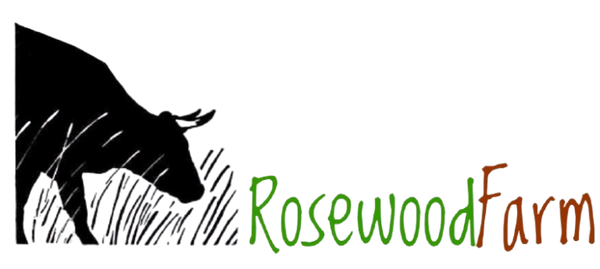
Organic Matters
Share
‘Are you organic?’ was a question put to me recently by a new customer at Rosewood. It’s a question we hear a lot and it's always a difficult one to answer because we’re not registered with any organic certification body but neither are we a ‘conventional’ farm. Taking a look at the Soil Association ‘Organic farming’ webpage we would appear to fit their definition to the letter, however, we're not members so we can’t legally claim to be organic or label the products as such.

We farm the way we do because it matters to us and we wouldn’t want to do it any other way. As per the definition of organic farming, our system is built upon organic matter, humus, in our soils. The more we add and the less we destroy, the better. Organic matter protects our soils from erosion and allows more water to be stored, making the crops more naturally resilient to both drought & flood. It also enables us to eschew the use of artificial chemical fertilisers, which are also responsible for loss of organic matter in conventionally farmed soils.
Some of our other reasons for not being certified as Organic are more obscure.
We are fortunate enough to have retained a number of small, local abattoirs in our area. This is quite rare these days since more and more regulation has pushed small abattoirs to the brink and we are keen to support them. As a result of this good fortune however, we can minimise journey times to slaughter and personally accompany our animals to their final destination in a matter of minutes. Maintaining these links with the local community and knowing the process from beginning to end is very important to me. Organic certification however would mean that our animals have to travel further to an approved organic abattoir. However, the Soil Association, the main UK organic body, have recently introduced a scheme where small, local abattoirs may operate under the producer’s own certification for an additional fee, so this will not be an issue in future, hopefully.
Last year we contacted a UK organic certification body to ask what could be done to register our farm, officially, as organic. The problem came down to the land, or rather our lack of ownership of it. Rosewood Farm has grown organically, if you will, from grazing small spare grass paddocks to covering some 300 acres of varied grazing, much of which is conservation land. We only own about 10% of the area we farm, so we rely heavily upon rented land for the bulk of our grazing and the majority of these are short-term lets.
UK farming is undergoing great change at the moment with the average age of farmers being 59, so many are looking to retire or get out due to low prices. The process of conversion takes three years, regardless of how 'organic' the land has been to date, by which time our lets may have expired anyway as our landlords change with the times. As you can see, Organic certification throughout all this would be a royal pain the backside, sucking up vast reserves of our time and energies, without any discernible difference in what we produce.
You can rest assured we have never used any artificial fertilisers for any of our land. All our customers are welcome to search the farm for a secret stash of chemicals and our accounts will show no receipts for it, ever! We also produce all of the feed for our animals here on the farm, which is 100% grass and forage throughout the year. The only supplements our animals receive are a lump rocksalt & Organic approved Hebridean seaweed meal to ensure they always have access to healthy levels of minerals.
Finally, the most important part of any pastoral farm is the livestock. Winters such as 2012/13, remind us that flexibility is important for animal welfare. Due to the dull, wet summer of 2012 the forage we made was of poor quality without the sugars to keep the animals going through the winter. We fed molasses to the cattle which helped to eek out the silage we did have, but forage stocks still dropped dangerously low due to the following long, cold spring of 2013. The freedom of not needing to consult a distant third-party and seeking their approval before we make decisions in the best interests of our livestock was vital.
Organic certification is of most advantage to longer supply chains where the customer must trust the label alone and the laws which govern its use. Here at Rosewood most of our customers are in direct contact with us and all are welcome to pay a visit to the farm to see how we do things. The label would therefore be an expensive luxury at £700 per year in cash and untold hours of paperwork etc. and would only add to the price we have to charge for our produce.
So no, we’re not an organic farm but we do a bloody good impression of one!



